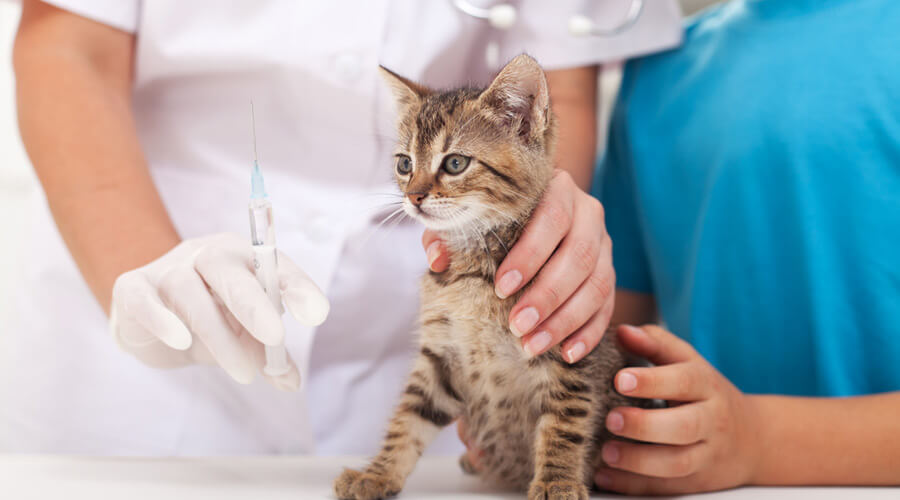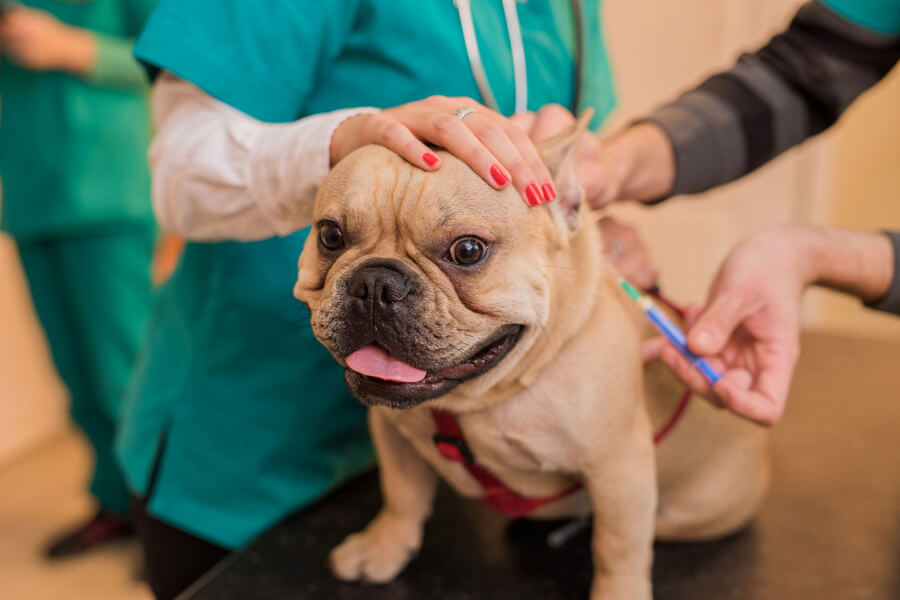The anti-vaccination movement is spilling into the animal world. An increasing number of pet owners are refusing to vaccinate their pets due to unfounded fears of canine autism along with other health concerns.
Reports state that anti-vaxxers are making the same speculative claims about pet vaccinations as they have about infant and child vaccines.
It is feared that pet vaccines are not only unnecessary but also dangerous, with the potential to cause canine autism along with other diseases.
And just as certain pockets of the country have seen child vaccination rates drop, it’s thought that the anti-vax movement may also affect pet vaccination rates.
TIME magazine reports, “In some states in the United States anti-vax activists have recently agitated to make state laws about mandatory pet vaccinations more lax.”
It seems it’s a similar case in Britain. A survey of more than 4,600 UK pet owners, conducted by the People’s Dispensary for Sick Animals (PDSA), found that in 2018 25% of dogs had not been vaccinated. The most widespread reason pet owners gave for not vaccinating their dog was that they felt it wasn’t necessary.
Yet, in spite of the fears amongst pet owners and anti-vaxxers, industry professionals maintain there is no link between pet vaccinations and canine autism.
In fact, in a statement issued early last year, Senior Vice President of the British Veterinary Association (BVA) Gudrun Ravetz says, “There is currently no reliable scientific evidence to indicate autism in dogs or a link between vaccination and autism.
“Vaccinations save lives and are an important tool in keeping our pets healthy. All medicines have potential side effects but in the case of vaccines, these are rare and the benefits of vaccination in protecting against disease far outweigh the potential for an adverse reaction.”
He says that while the BVA welcomes a platform for pet owners to discuss vaccinations, there is concern about the potential adverse impact on pet health. Without a veterinary or scientific voice for a balanced perspective on the issue, the platform would likely cause unnecessary alarm amongst pet owners.

Source: Jeffers Blogs
Australian pets at risk
However, it’s not just overseas that anti-vaxxers are setting their sights on pet vaccines. Speaking to The Daily Telegraph, Sydney vet Dr Sam Kovac says the trend has reached Australian shores.
He says, “Pet anti-vaxxers are adamant that vaccinations can cause deleterious effects as severe as autism — despite the fact there are no recorded cases of animals with the condition.”
The advice from the Australian Veterinary Association (AVA) is that vaccination protocol should be determined within a veterinarian-client-patient relationship.
“The decision should be determined by factors such as the individual animal’s health status, the animal’s age and likely effects of maternally derived antibodies (MDA), the particular disease and environmental risks to the animal, and the duration of immunity (DOI) of available vaccines.”
The AVA highlights that pet vaccinations not only deliver proven life-saving benefits, but also help foster the early detection and treatment of other diseases through regular clinical examinations.

Educating the public on pet vaccinations
Advising pet owners on the importance of vaccination is a key role for pet professionals.
UK-based organisation Understanding Animal Research states, “Just like children, dogs and cats need vaccinations against dangerous viral and bacterial diseases. Vaccination remains the single most effective method for protecting against infectious disease in healthy animals.”
Thus the message that all pet professionals can share with members of the public is, “without proper vaccination, your pet is left unprotected from several highly contagious diseases.”
Key points to share with pet owners about pet vaccinations include:
- Pet vaccines exist to prevent animals from falling ill.
- Vaccinations are developed under very strict guidelines.
- Pet vaccinations, like human vaccines, adhere to stringent safety rules.
- They provide immunity from many infectious diseases that can impact both animal and human health.
- Vaccine injections contain weak or partial versions of a pathogen. They trigger the production of antibodies, which will assist the animal’s body to effectively fight off the disease-causing organisms more effectively, should they come into contact with them.
- Scientific evidence indicates that vaccines are both safe and effective at preventing numerous deadly diseases.
- If pet vaccination rates decline, the risk is that we’ll see the return of many currently rare diseases.
- The protection provided by a vaccine decreases over time, which is why periodic (annual) vaccines are required.

Advising on core pet vaccinations
There are several core vaccinations recommended for companion animals in Australia.
Dog vaccinations
According to the RSPCA, core vaccinations for dogs in Australia include:
- Canine distemper virus – a deadly disease that attacks a dog’s nervous system and can lead to severe damage, including paralysis. Puppies and young dogs are most susceptible to this virus.
- Canine adenovirus – a serious disease that affects the liver, eyes and kidneys.
- Canine parvovirus – a fatal and highly common virus that attacks the intestinal tract.
These vaccines are often grouped together in one injection – the ‘C3’ vaccine.
Cat vaccinations
Core vaccinations for cats in Australia include:
- Feline parvovirus – also referred to as feline distemper, this viral disease is affects the blood cells in the body that rapidly divide, leading to a feline form of anemia. As a result, the cat can become vulnerable to other bacterial or viral illnesses.
- Feline calicivirus – a common respiratory disease.
- Feline herpesvirus – a widespread causes of upper respiratory infections resulting in sneezing, watery eyes and congestion.
As pet professionals, it’s important to advise pet owners that vaccination requirements may differ, depending on the individual animal.
While core vaccines are recommended for all pets, there are non-core vaccines that may be required depending on the animals environment, age and perceived risk of infection.
Ultimately, the issue of pet vaccinations should be a discussion between pet owner and vet with the animal’s best interest at the core. And everyone who works in the pet industry can help encourage more discussion in this area to help debunk the myths and increase education.
Latest posts by Liz Walden (see all)
- Pet health: Medicinal cannabis for pets - December 27, 2021
- What pet business insurance do I need? - November 17, 2021
- Pet sitters: how to take time off - November 15, 2021









The article could benefit from a discussion about the pros & cons of yearly
titre tests to establish where the animal needs the vax every year.
I believe that immunizations are a crucial part of keeping our dogs healthy and that they also save lives. Although vaccinations have side effects that might occur, you explained that they are uncommon and the advantages of immunization in preventing disease far exceed the possibility of an unpleasant reaction. I will pass this along to my sister who just adopted a puppy at the local pound. I’m sure she’ll be required to get a pet vaccination for its safety and hers.
I appreciate you pointing out that when it comes to dogs and immunizations, one size does not fit all. You said how a vaccination schedule takes into account your dog’s age, way of life, general health, and other aspects to keep them happy and healthy. I’ll share this with my sister, who recently acquired a dog from the neighborhood pound. She’ll undoubtedly need to get vaccinated for her own safety and the protection of the pet with the help of a good veterinarian.